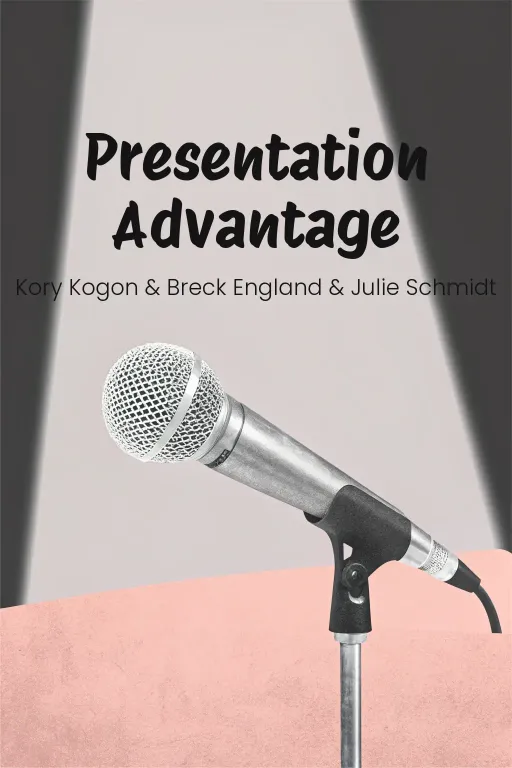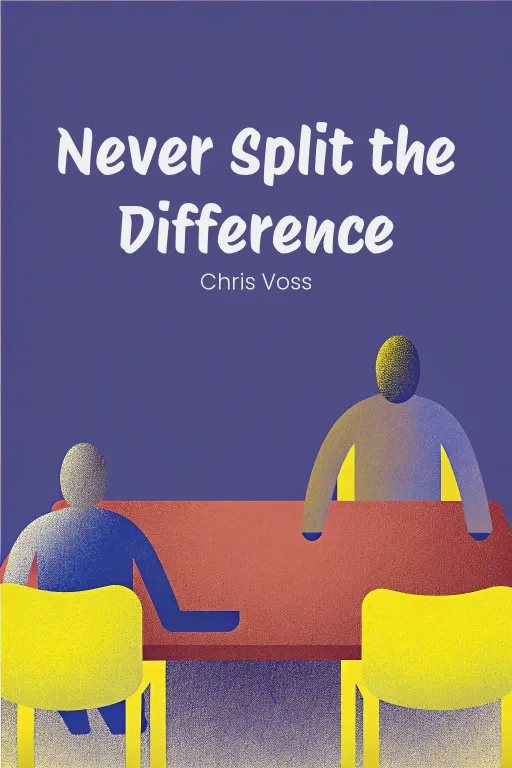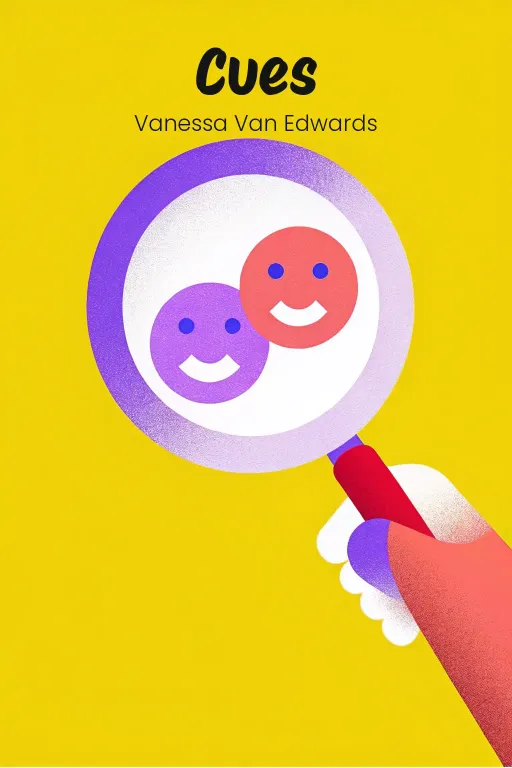
Speak Words That Win
Podcast by The Mindful Minute with Autumn and Rachel
What to Say to Get Your Way
Speak Words That Win
Part 1
Autumn: Hey everyone, welcome to the show! Let me set the scene for you. Have you ever been in a situation where someone just knew what to say? Like, the “perfect” thing at the “perfect” time, and suddenly, everything just clicked? Maybe it was a sentence that sparked something in you, a question that suddenly made a conversation so much deeper, or even just a word that made an opportunity seem real. What if I told you those moments aren't just luck? That there's actually a method to this? Rachel: So, you’re saying it's not some mystical, magical power, but more about understanding how words affect people, right? Autumn: Precisely, Rachel! Jonah Berger’s book, “Magic Words: What to Say to Get Your Way”, gets into the psychology and linguistics of how language shapes our interactions. How it influences our decisions and how it strengthens connections between people. It’s full of insights on how the words we use can build confidence, create rapport, and even challenge the way we think about the world. Rachel: Gotcha. So, today we’re breaking down three key things from Berger’s book, right? First, we’ll look at the “why” – why these so-called magic words actually work and how they can change our interactions with others. Then, we'll explore how to sound confident. And third, we'll discuss how asking better questions can lead to deeper, more meaningful relationships. I'm especially interested in that last one. Autumn: Exactly, Rachel! And the best part is, each of these areas comes with actionable advice that you can apply daily. Whether you’re preparing for a job interview, trying to build friendships, or even trying to navigate social dynamics, these tips can “really” make a difference. Rachel: Okay, so we're diving into a little bit of psychology, a touch of sociology, and maybe even some persuasion techniques. I'm curious to see how all of this fits together. Let’s get started!
The Power of Language and Magic Words
Part 2
Autumn: Okay, Rachel, so let's jump right in. When we talk about "magic words," we're not just throwing around a catchy phrase, right? Jonah Berger uses this term to describe words and phrases that have a real impact beyond their dictionary definition. They tap into psychological and emotional principles. It's really about how our language shapes someone's thoughts, their own sense of self, and ultimately, their behavior. Language is far more powerful than we often realize, isn't it? Rachel: Right, so "magic words"... that's not just "please" and "thank you," then? We're not just talking about basic etiquette here, are we? Are we talking something a bit more cunning, a bit more Machiavellian? Autumn: Definitely more than just good manners, Rachel! While those polite words have their place, Berger's really focusing on the strategic use of language to achieve very specific goals. Think about words that connect actions directly to someone's identity. By framing something as part of who someone is, as opposed to just something they do, you can actually motivate behavior much more effectively. Remember that study conducted at Bing Nursery School? Rachel: Oh yeah, the one where they got preschoolers to clean up by calling them "helpers"? I wouldn't have guessed that such a tiny difference – "helper" versus just asking for "help" – could make such a big difference, but hey, the proof's in the pudding. Kids responded way better when being helpful was framed as part of their identity, not just another chore. Autumn: Precisely. It's all about tapping into that deep-seated human need to maintain a consistent sense of self. It's not just kids, either. A separate study revealed that referring to people as "voters," instead of just telling them to "go vote," actually increased voter turnout. It's amazing when you stop to think about it. It really shows how closely our words are linked to our self-image, and how we're pretty much wired to act in ways that align with that image. Rachel: Okay, okay, but let me play devil's advocate for a second here. What if these identity-based words backfire? What if you call someone a "voter," and they think, "Eh, I'm already a voter; I don't need to prove it this year?" Autumn: That's a totally legitimate point, which just proves why context, and how you frame things, is super important. Mostly, having an identity affirmed gives people a motivational boost because it reminds them of who they aspire to be. It's aspirational, right? If it doesn't work, you have to ask yourself why people might feel disconnected from the identity you're trying to assign them. So it's not that there's anything wrong with the magic words themselves, but more that the self-concept isn't resonating with that particular person, or that it feels unattainable for them. Rachel: So, it's not just about throwing words around all willy-nilly, is it? It's about tailoring them to your audience's values and aspirations, right? Got it. So what's next on our magical linguistic adventure? Autumn: Next up, we're diving into how "magic words" can actually shape mindsets. This is particularly relevant when you're trying to encourage creative thinking or when you're tackling complex problems. You know the classic "candle problem," right? Rachel: Oh, the one where you have to figure out how to stick a candle to a wall using a box, tacks, and matches? The solution is to use the box as a candleholder, and seems simple, but something in your brain messes you up because you're stuck seeing the box as just a container. Autumn: Exactly! That's what we call "functional fixedness," and a slight change in language can help people break through it. Research has shown that shifting from a "should" mindset to a "could" mindset helps people think much more flexibly. So instead of focusing on what they should do, which can feel restrictive, they think about everything they could do, which opens up all sorts of creative possibilities. Rachel: So, ditch the "shoulds" and embrace the "coulds," huh? I like it. But let's bring it back to Earth a little bit. How could reframing language like this actually help in, say, a workplace situation? Autumn: Great question! Picture this: you're in a brainstorming session. If the team leader asks, "What should we do to meet this deadline?" people will probably fall back on conventional answers – work longer hours, cut corners, and so on. But if the leader asks instead, "What could we do to approach this differently?" well, suddenly the floor's open to all sorts of inventive suggestions – maybe reassigning resources, or partnering with a new department. It changes the whole vibe from obligation to opportunity. Rachel: That makes a lot of sense. It's almost like you're giving people permission to be a little more adventurous in their thinking. Can you push this mindset shift even further? Could it work when you're up against, say, moral dilemmas? Autumn: Funny you should ask—a Harvard study actually explored this. Participants were presented with moral dilemmas, tough situations with conflicting outcomes. One group was asked what they should do, and the other was asked what they could do. The "could" group came up with three times as many unique solutions. Three times! Rachel: Three times as many solutions? Okay, that's not just reframing – that's practically alchemy! So I guess the takeaway here is that "magic words" like "could" don't necessarily give you the answer, but they do unlock the door to more dynamic, open-ended thinking. What's next on the list? Autumn: Next, we're going to look at the cognitive triggers behind certain words. The word "because" is a prime example. It's simple, yet remarkably persuasive. There was a really fascinating study that showed that adding the word "because" to any request increased the likelihood of people agreeing to it. Rachel: Let me guess: "because" activates something in our brains where people instantly feel there is a reason, even if it's superficial? Autumn: You nailed it! In the experiment, people who were waiting in line for a photocopier were far more willing to let someone cut in front of them if they heard, "May I go ahead because I need to make copies?" I mean, clearly everyone in line needs to make copies, right? Still, the word "because" triggered something. It taps into our inherent assumption that there's a valid reason behind an action, which increases compliance in that circumstance as well. Rachel: Okay, "because" is clearly powerful, but let me throw a wrench in the works here. Can you use these kinds of persuasive language on everyone, or are some people more resistant to it? Autumn: Well, it's not foolproof, obviously. Savvy people will probably question flimsy justifications. But the power of "because" has less to do with the quality of the reason and more to do with tapping into what psychologists call the "peripheral route to persuasion." Most of the time, people are sort of running on autopilot, and "because" acts like a shortcut switch in their brain. Rachel: So, it's maybe less about convincing Einstein and more about gently nudging people during those mundane, everyday decisions. I can see this working, especially when it's linked to storytelling and emotional resonance. Autumn: Exactly, which leads us to our final "magic word" superpower: evoking emotion and connection. That's where language really shines, because it's not just about the logic, it's about the feeling. Descriptive and emotionally charged language is more memorable and engaging. Think about the difference between saying, "We fixed the issue" and "We solved the leaking faucet dripping under the kitchen sink." They both convey the same information, but one's more abstract, while the other paints a picture. Rachel: Yea, so storytelling is next level. I've always found that TED speakers who share a personal anecdote often make more of an impact than the ones who just rattle off statistics or information. There's something about vulnerability, emotional peaks and valleys, and narrative arcs that just resonates with people. Autumn: Right! Stories with emotional highs and lows help people feel seen and cared for. Concrete details and emotional language act as bridges to these shared experiences, whether you're just persuading, or educating, or even just bonding. Rachel: So, “really”, the magic of language is a perfect blend of strategy and emotion. It can move people's hearts while guiding their minds. What's not to love?
Conveying Confidence Through Language
Part 3
Autumn: So, we've explored the fundamental power of language, and now we’re diving into how to strategically use it to project confidence. We're going to focus on linguistic techniques that can “really” boost your authority and credibility. We’ll cover research on confidence in communication, give you some examples of effective phrasing, and then wrap up with practical tips for sharpening your verbal assertiveness. Rachel: Okay, confidence in communication – it sounds essential, right? But also, potentially risky. I mean, we've all encountered someone who's "confidently wrong," right? So, how do you exude authority without, you know, coming across as arrogant or, even worse, bluffing your way into trouble? Autumn: That's a “really” good point, Rachel. Confidence isn't about pretending you have all the answers. It's about presenting information, or presenting yourself, with clarity and conviction, even when there's uncertainty. And the research shows that confident language “really” does impact how people perceive you. Remember that 2004 study on financial advisors? Rachel: Oh, yeah! Where Adviser A played it safe, using probabilities like, "there's a 76% chance," while Adviser B confidently declared a bolder "93% chance," even though they were both equally accurate. And, surprise, surprise, three-quarters of the participants chose Adviser B, totally swayed by the air of certainty. It’s kind of crazy how delivery can overshadow the actual substance, right? Autumn: Exactly! That study “really” highlights confidence's power in decision-making. People tend to equate certainty with competence. And that makes confident language super valuable in high-stakes situations like leadership roles, negotiations, even courtroom testimony. Speaking of courtrooms, there's some interesting research by linguist William O'Barr on how witnesses communicate that “really” drives this point home. Rachel: O’Barr, right. The guy who found that jurors trusted witnesses who spoke without a lot of, you know, hedges or filler words—like "I think" or "maybe." And hesitant testimonies, even if they were factually correct, just seemed unreliable. The takeaway? A solid argument is only as persuasive as how it's delivered. Autumn: Exactly. So, let's break down how anyone can actually cultivate this kind of confident delivery. The first step is just avoiding hedging and filler words. These habits, which seem harmless, can “really” muddy your message and weaken your conviction. Take Lindsey Samuels, for example. Rachel: Oh, the sales executive who went from "hesitant Lindsey" to the corporate queen of persuasion? I love that story! Tell our listeners what exactly changed for her. Autumn: Lindsey used to rely on phrases like, "I think this plan might work," or "We could probably see results" – all those hedged, weak phrases. After some speech coaching, she replaced those with clear, decisive statements like, "This plan works because of X." And, guess what? Her sales conversions skyrocketed because her clients finally believed in her confidence. It just underscores how small shifts, like dropping the "maybe" and "I thinks," can “really” transform your authority. Rachel: But let’s be real, some people use hedging, because they are scared to sound forceful or alienate their audience. Is there a balance between being confident and being overly assertive? Autumn: Absolutely. It's not about steamrolling anyone. It's about conveying your message with both clarity and conviction. That brings me to tip number two: adopting definitive language. Instead of saying wishy-washy things like, "This could be a good idea," try saying, "This idea works because…" Reframing it like that does not just sound confident, it anchors your point and makes it stronger. Rachel: And talking about framing, word choice is also important. Like when you change the verb tense. Saying that “I handled it well," sounds like it’s in the past. But telling people that "I handle situations well," make it sound relevant and reliable right now. Autumn: That’s so true. Small tweaks like verb tense can “really” project confidence and reliability in subtle ways. But all of this - the phrasing, the word choice - it all hinges on one “really” important thing: preparation. Confidence is “really” built through mastery of what you're talking about. The more familiar you are with your material, the more naturally decisive you're going to sound. Rachel: Like trial lawyers who rehearse every single angle of their case? I mean, they don't just wing it; they practice the exact phrasing, pace, and responses. And when they project confidence like that, juries see them as credible, not cocky, right? Autumn: Absolutely, that’s a great example. Preparation not only strengthens your message, but it eliminates any uncertainty in your delivery. And before we move on, I want to touch on one last nuance: confidence “really” needs to be balanced with relatability. Rachel: Ah, so this is how to avoid falling into the "overconfidence trap." What does that balance actually look like in practice? Autumn: Let's say a leader's presenting to their team during a moment of uncertainty. To balance confidence and relatability, they might say, "This aspect of the project remains unclear, but we're pursuing X approach to resolve it." Basically, they're admitting that they don't know everything, but they're focused on solutions. That's how you invite trust - by being honest, yet reassuring. Rachel: So, it's not about pretending you know it all. It's about knowing when to signal vulnerability while keeping the focus moving forward. Okay, let's give our listeners some actionable next steps. How can they sound confident, like, right now? Autumn: First, cut out those doubt-filled phrases like "I think" or "probably", and practice replacing them with declarative statements. Second, record yourself speaking to catch any filler words, and then consciously replace them with deliberate pauses. Third, remember that nonverbal communication matters: steady eye contact and a controlled vocal tone help reinforce your words. And lastly, prepare some context-specific language. Plan out phrases that match your goals and your audience so your messages “really” land with precision. Rachel: And if we tie it all back, it's not just about projecting confidence – it's about inspiring trust and action. Armed with the right linguistic tools, anyone can walk into a room and speak with “real” authority. Pretty powerful stuff, right?
Building Relationships Through Structured Questions
Part 4
Autumn: Okay, so after exploring how confidence is conveyed, let’s move on to strategic questioning and how it deepens connections. This is an area I find so interesting because it focuses on something we often overlook, which are the “questions” we ask. Let’s shine a light on how intentionally structuring our questions can actually strengthen relationships. We’ll start with the theory behind effective questioning, look at the “Fast Friends” method as a good case study, and wrap up with some practical tips that anyone can use, right? Rachel: Questions as relationship-builders, huh? We spend so much time worrying about giving the “right” answers, but focusing on asking the “right” questions? Seems a bit…backwards, maybe? Or at least, unusual. Autumn: Exactly! But the key is the “structure” of the questions. Structured questioning creates a path from just casual curiosity to deeper, more meaningful exchanges. We're not just talking about "What's your favorite color?" but building a specific sequence of questions carefully designed to move from comfort to vulnerability. One great framework for this is psychologist Arthur Aron's "Fast Friends" method. Rachel: Ah, yes! The experiment where total strangers ask each other increasingly personal questions and end up feeling super close…closer than some old friends, right? All it takes is 36 questions and…45 minutes? Wild. So, it starts off light, I assume? "What’s your favorite TV show?" before jumping straight into "Tell me about your deepest fear?" Autumn: Well, you're not “too” far off, but the order is really important. It starts with neutral, non-threatening questions like, "What would a perfect day look like to you?" These sorts of questions ease participants into the interaction, creating a sense of comfort. From there, it gently moves into topics that invite some reflection, like, "What's something you've always dreamed of doing but haven't done yet?" This step-by-step process builds trust, layer by layer, until you get to questions that encourage vulnerability, such as, "What's a personal regret you've never shared before?" Rachel: And the results were actually surprising, weren't they? People came out of these sessions feeling deeply connected to someone they just met. Total strangers reporting levels of trust and intimacy that usually take months, or even years, to build. Friendship speed-dating on steroids, right? Autumn: It really is! And the psychology behind it is all about vulnerability. When we share something personal, especially in response to a thoughtful question, it sends a very clear signal: "I trust you enough to share this with you." And if—if—the other person responds in kind, and shares something in return, it creates a mutual exchange that strengthens the bond. So, meaningful questions are key here - not just the usual run-of-the-mill small talk. Rachel: Okay, okay, fair enough. Here's the question I have, though: Is structured questioning something you'd really only use in a lab? I'm trying to picture myself asking someone I just met, "If you were going to die tonight, what would you regret?" without them thinking I'm completely insane. Autumn: I totally get it, Rachel! The “Fast Friends” experiment takes place in a very specific, controlled environment, so context really matters! We certainly wouldn't want anyone thinking we're suggesting they take all 36 questions and use them verbatim on a first date or at a team meeting, right? But what we “can” take away and learn from this is the principle of gradual emotional progression, that's the real lesson. Start with neutral but personal questions, like "What's something you're passionate about?" Then build on their responses to deepen the conversation naturally. Rachel: Alright, fair enough. But how does this look in…say, a “workplace” setting? I'm just picturing an HR manager asking an employee, "So, what's your greatest life regret?" and then immediately getting a call from the legal department. Autumn: No, no, not quite like that! In professional environments, it’s really about adapting the principles to fit the context. A manager may start with something like, "What motivates you in your role?" And as trust grows, they could move to questions regarding something like, "What do you feel has been your biggest challenge at work?" Phrasing like this helps create meaningful discussions without crossing any of those professional boundaries. Rachel: That makes sense. What about this mutual disclosure? You mentioned earlier that effective questioning isn't some kind of hostile interrogation, but more like a two-way street, right? Autumn: That's a critical point, definitely. Reciprocity is absolutely essential to creating a bond between those two people. When someone shares something significant, you've got to respond with something equally heartfelt. If a colleague opens up about a tough project they handled, instead of just moving on to the next topic, maybe you share your own story of a similar challenge. Or if you don't have something like that, you could offer an empathetic response, something that shows that you understand what they're going through. That give-and-take is what builds genuine connection. Rachel: Here's another scenario for you: How do end one of these structured conversations? After all the vulnerability, how do you wrap things up without it feeling abrupt or just plain awkward? Autumn: Great question! That's where reflective questions come in. Try something like, "What was the most surprising part of our conversation for you?" Or maybe even, "What's one thing you'll take away from this discussion?" Questions like these help both parties reflect on the experience you've just engaged in and it also helps to reinforce the relationship that you've been building. Rachel: Okay, so we've covered the theory and some specific scenarios, but I'm curious about the broader impact, like beyond those one-on-one interactions. Are there any examples of how this has been used on a larger scale, maybe with entire communities? Autumn: Actually, yes. The principles we've discussed have been applied to bridge divides even between law enforcement and communities. In these initiatives, officers and residents participate in structured dialogues where they answer questions like, "What's a personal experience that shaped how you see your community?" These guided exchanges help break down existing stereotypes, helps foster empathy, and ultimately builds trust. Rachel: You know, that's a really powerful example. If structured questioning can help mend something as fractured as community-police relations, it's got to have some serious weight. All this makes me wonder, does this also apply to teamwork in business? To help get your colleagues to connect on a deeper level, not “just” about business? Autumn: Definitely! Managers, for example, can ask questions like, "What do you find most fulfilling about your work?" Or, "What's one area where you feel you could use more support?" These promote understanding, and greater collaboration, while also showing employees that their perspectives actually matter. Rachel: So, the takeaway here is that the right questions—the “well-structured questions”—don't just help you “extract” information…they help you build an authentic connection. It's less about prying into people's lives and more about creating a space where people feel seen and heard. Autumn: Exactly, Rachel. Structured questioning is really about intentional communication—asking with purpose, listening with empathy, and responding with reciprocity. Whether it's a 45-minute experiment or just an everyday conversation, these techniques can really change how we engage with others.
Conclusion
Part 5
Autumn: Wow, what a trip we've been on today! We really dove into the power of language and how these “magic words” can totally transform our interactions. From building confidence with smart phrasing to forging deeper connections through the way we ask questions. Rachel: Yeah, and what really struck me was how practical all this is. It's not just theory, right? It's actually useful! Whether it's using those identity-linked words, you know, like calling someone a “helper,” or sparking curiosity with a simple “could,” or even just structuring how you ask questions to get deeper over time, there's a clear path here to better communication. Autumn: Absolutely. Language isn't just something we use, it's like, the lens through which we experience everything. So, here’s a thought for our listeners: really think about how your words affect the people around you. Is there a way you could be more intentional in how you inspire, connect, or even just motivate them? What kind of magic could you make just by tweaking a phrase here and there? Rachel: Because, let's be real, if a single word like “because” can convince someone to let you cut in line at the copier, imagine the impact of using carefully chosen language in, like, your everyday life. Thoughtful communication, the kind we've talked about, isn't about showing off a big vocabulary – it's about being present, strategic but most of all, being human. Autumn: Exactly! That's the real magic of it all. So, as you head into your next conversation, just stop and ask yourself: what kind of story am I telling with my words right now? And, more importantly, what kind of connection am I trying to create? Remember, words really do shape entire worlds. Let's use them wisely. Rachel: Couldn't have put it better myself. Podcast over, everyone. Time to go and change the world, one conversation at a time.









